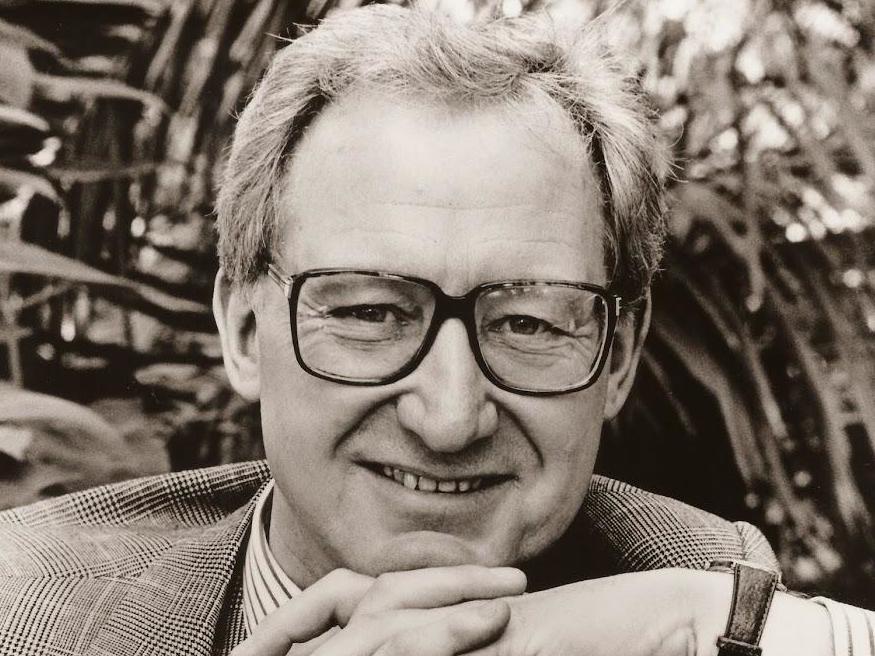Herbert Chappell: TV composer and producer who brought the Three Tenors to the world stage
Writer of more than 200 film and TV scores, his music appeared in everything from ‘Songs of Praise’ to ‘Dawn of the Dead’

Your support helps us to tell the story
From reproductive rights to climate change to Big Tech, The Independent is on the ground when the story is developing. Whether it's investigating the financials of Elon Musk's pro-Trump PAC or producing our latest documentary, 'The A Word', which shines a light on the American women fighting for reproductive rights, we know how important it is to parse out the facts from the messaging.
At such a critical moment in US history, we need reporters on the ground. Your donation allows us to keep sending journalists to speak to both sides of the story.
The Independent is trusted by Americans across the entire political spectrum. And unlike many other quality news outlets, we choose not to lock Americans out of our reporting and analysis with paywalls. We believe quality journalism should be available to everyone, paid for by those who can afford it.
Your support makes all the difference.Effortlessly at ease on all sides of the cultural divide, Herbert Chappell, who has died aged 85, was a musician, composer, conductor and filmmaker who carved out a rich career writing music for film and TV.
As head of the Decca record label’s audio visual department, Chappell was the driving force behind the Three Tenors event during the 1990 Fifa World Cup in Italy, when Luciano Pavarotti, Placido Domingo and Jose Carreras were persuaded to gather in the Baths of Caracalla, Rome, for a performance televised live to 56 countries and an estimated 800 million viewers.
The clever programme design was Chappell’s, with each singer taking a solo and all three coming together in ensemble to sing popular favourites, thus dividing the contrasting phrases to give each performer an equal opportunity to shine. The recording, Carreras Domingo Pavarotti in Concert, released on Decca, became the bestselling classical album of all time.
His career break had come in the early Sixties when he was recruited by Huw Wheldon to contribute to a newly established BBC2. Alongside presenting ballets and operas from all around the world, Chappell would work on music programmes with luminaries such as Leonard Bernstein and Andre Previn. With Previn he made Sounds Magnificent, a series about the symphony that highlighted his gift for describing musical processes and progress. In a 1975 Omnibus programme he and composer David Fanshawe retraced the latter’s journey through north and west Africa to create the 1972 choral mass African Sanctus.
Herbert (“Bert”) Reginald Chappell was born in Bristol and received his early musical training as a chorister at the city’s cathedral. Moving on to read music at Oriel College, Oxford, in 1952, there he came under the occasional tutelage of two musical heavyweights, Bernard Rose and Egon Wellesz. He subsequently stayed on to undertake postgraduate studies (and to avoid conscription). In 1959 his rock’n’roll adaptation of Sir John Vanbrugh’s The Provok’d Wife, now entitled That Was No Lady, was produced at the Playhouse by the university’s Experimental Theatre Club. Directed by Ron Heapy, it had a young Ken Loach in the lead and Richard Ingrams in support.
Able to write quickly and with a feel for time and place, Chappell, after a brief period as a teacher, was soon writing, scoring and conducting everything from advertising jingles to feature films. His many film and television scores – more than 200 in total – included The Shadow of the Tower, Paddington Bear Goes to the Movies, The Roses of Eyam, In Loving Memory and his enchanting music for The Pallisers. His song “Gonk” appeared in the 1978 film Dawn of the Dead and suitably remixed reappeared in both the 2004 movie Shaun of the Dead, and the TV cartoon Robot Chicken. In 1980 he created a new theme tune for the BBC television programme Songs of Praise.
Chappell’s blend of pop and pastiche, expanding further the style of the 20th Century Church Light Music Group, remains at the heart of his sacred music output. His pop cantata The Daniel Jazz (1963), a setting of words by Vachel Lindsay that he once described as “hotting up the Bible”, spawned a raft of imitators. He himself contributed further to the genre with The Christmas Jazz, The Goliath Jazz, The Noah Jazz and The Jericho Jazz. In similar mood was a richly melodic set of Carols for Today and the more responsorial Psalms for Today, each cleverly and precisely imagined, their structures handled with fluency and care.
Conceived on a larger and perhaps more personally distinctive canvas, his orchestral music includes a set of Hollywood Portraits, a dazzling overture, Panache, the Facade-like fantasy George and the Dragonfly, a whodunit for narrator and orchestra, Dead in Tune, and, inspired by Harry Potter, The Boy Wizard.
No less impressive are his works for the stage, including Mak the Sheep Stealer, a two-act chamber opera based on Oscar Wilde’s The Importance of Being Earnest, and Roald Dahl’s James and the Giant Peach. Seamlessly uniting the many diverse elements in his technique is his Antiguan-inspired, richly coloured Caribbean Concerto for Guitar and Orchestra.
He is survived by his second wife, Julia, two sons and three daughters.
Herbert Chappell, musician, born 18 March 1934, died 20 October 2019
Join our commenting forum
Join thought-provoking conversations, follow other Independent readers and see their replies
Comments